Blue print

Sampler
A1 to C1
Beginner to Advanced


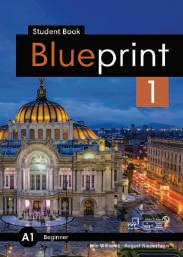
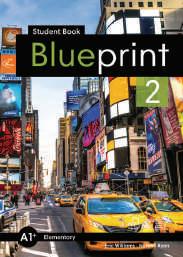
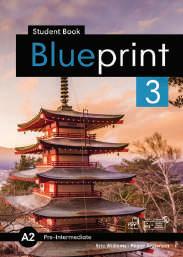



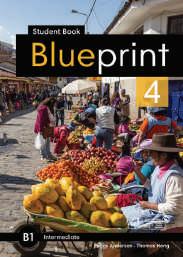
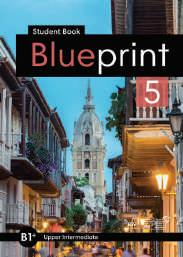
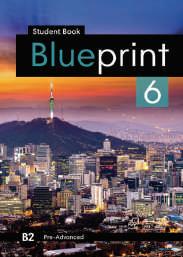



Introducing the Blueprint series! BUILD YOUR WORLD Real-World English Language Competency to C1 Advanced Scan to view sample unit! A1 Beginner A1+ Elementary A2 Pre-Intermediate Scan to view sample unit! Scan to view sample unit! Scan to view sample unit! B1 Intermediate B1+ Upper-Intermediate B2 Pre-Advanced Scan to view sample unit! Scan to view sample unit! Scan to view sample unit!
Blueprint is a seven-level coursebook series that teaches adult learners of English the useful language they need to succeed in their daily lives.
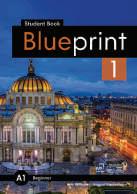
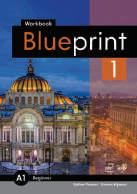
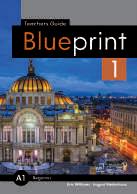
Each module teaches learners how to communicate in everyday situations, with a practical syllabus built on CEFR-based competencies. Learners gain familiarity and fluency through a balance of language input and output activities, and useful, high-frequency expressions.
Components for students
Class Booster
Student app with extra practice exercises and videos
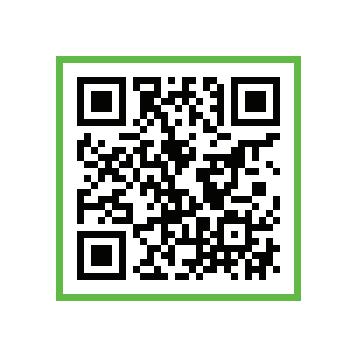
* Additional digital material available on the Compass Publishing website!
Components for teaChers
Teacher’s Guide Includes teacher’s notes and extra classroom activities
Blueprint Features

• Thematic module structure
• Practical real-life topics and settings
• Level-controlled content
Downloadable Online Resources Answer Keys, Word Lists, Vocabulary Tests

Interactive Whiteboard Materials


• Grammar and structures presented in the order found in prominent CEFR-based inventories
• Balanced lesson structure with: meaning-focused input, meaning-focused output, language-focused learning, and fluency development
• State-of-the-art supplemental materials
Blueprint 3
Blueprint 4
Blueprint 5
Blueprint 6
Blueprint 7
A1 A1+ A2 A2+ B1 B1+ B2 B2+ C1
Progress from CEFR A1 to C1
Blueprint 1
Blueprint 2
Student Book and Workbook with Audio QR Codes
1
The Module Preview couples units thematically to immerse students in real-life situations. CEFR-based goals let students know what they are expected to be able to accomplish upon completion of the unit.
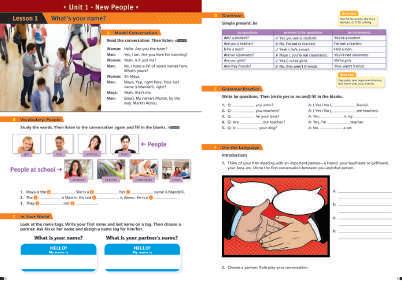
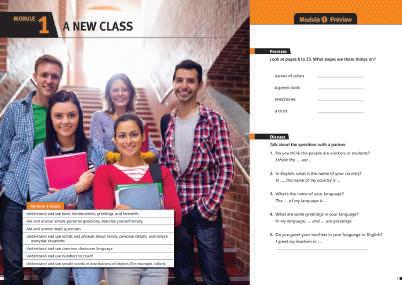
unit Lessons
Each unit is composed of five dynamic lessons designed to balance meaning-focused input and output, language-focused learning, and fluency development.
Model Conversations, Authentic Texts, and Text Markups are designed to make language-focused learning of vocabulary and grammar easier for students.
In Your World, About You, and Use the Language activities strengthen students’ language output by having them perform real-world activities.
Active Reviews, Fluency, and Communication pages check students’ language development.
Active Reviews consolidate language introduced in the unit with new, practical meaning-focused output activities. Fluency and Communication pages test and improve students’ communicative ability.
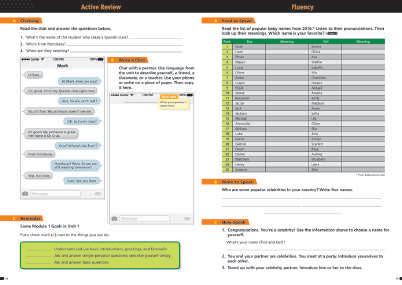
student Book WaLkthrough 2
WorkBook WaLkthrough
Featuring self-study activities with new audio tracks, Workbook lessons correspond to the lessons in the Student Book to reinforce comprehension of grammatical structures and vocabulary.
Like the Student Books, the Workbooks include review material at the end of the units and modules to consolidate language development.
Expanded learning tips added as Brief notes in the Student Book and Workbook.
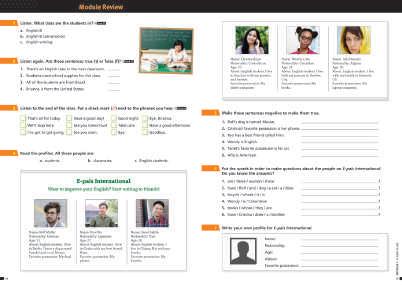
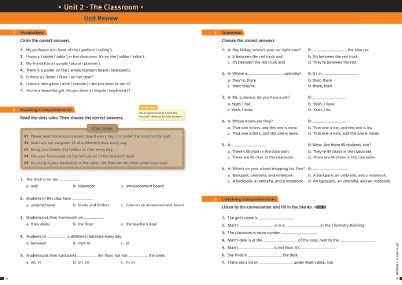

3
Blueprint a1 scope and sequence
Module Goals and CEFR Level Unit and Lessons Vocabulary Grammar and Structures
A1 Understand and use basic introductions, greetings, and farewells
A1 Ask and answer simple personal questions; describe yourself simply
A1 Ask and answer basic questions
A1 Understand and use words and phrases about family, personal details, and simple everyday situations
A1 Understand and use common classroom language
A1 Understand and use numbers to count
A1+ Understand and use simple words in descriptions of objects (for example, colors)
Unit 1 New People
1 What’s your name?
2 I’m the teacher.
3 Titles
4 Where are you from?
5 Bye.
Basic descriptions of people
Common questions and ways to answer
Words and phrases used in greetings, introductions, and farewells

Common jobs, marital statuses, and titles
Country names and nationalities
Lesson 1 Simple present: be Lesson 2 Short forms (contractions)
Lesson 3 Short forms (contractions) in negative statements
Lesson 4 be questions with question words
Lesson 5 Possessives
Unit 2 The Classroom
1 What do you have in here?
2 What do you have outside?
3 Whose is it?
4 The Things Around You
5 Where is it?
School supplies Numbers
Colors
Classroom objects
Prepositions of location
Lesson 1 Articles a and an
Lesson 2 Simple present: have
Lesson 3 Possessives: pronouns and questions
Lesson 4 Questions and statements with there is and there are
Lesson 5 Prepositions of location and prepositional phrases
A1 Build a vocabulary of words and phrases about family and personal details
A1 Describe your family in short, simple spoken or written phrases
A1 Understand, ask, and answer simple personal questions such as How old are you?
A1 Understand and use days of the week and months of the year
A1 Understand and use numbers as ages and dates
A1 Give personal information, such as age and basic information about family
A1+ Describe your family simply (for example, the members, how old they are, and what they do)
A1+ Indicate time by such phrases as in November
Unit 3 About Family
1 In My Family
2 Technology and Media
3 Family Photos
4 They’re his ex-wives.
5 Appearance
Unit 4 School Life
1 Ages and Birthdays
2 Studying
3 Do you have class on Friday?
4 Going to College
5 I study at night.
Family members
Technology and media
Demonstratives
Extended family Appearance
Lesson 1 how many questions and their answers
Lesson 2 some and any
Lesson 3 Questions with who
Lesson 4 Plurals
Lesson 5 Describing appearance using with prepositional phrases
Months
Dates and ordinal numbers
Days of the week
School-related verbs and verb phrases
Schools and grade levels
Parts of the day (morning, etc.)
Daily activities
Lesson 1 Questions with when and how old
Lesson 2 Simple present in affirmative statements
Lesson 3 Simple present in questions and answers
Lesson 4 3rd person singular subjects in simple present affirmative
Lesson 5 Prepositional phrases of time
Module
Book
Beginner 4
1: A New School Module 2: Life and School
1
Module 3:
A1 Understand and use numbers in times
A1 Understand simple words and phrases like excuse me, sorry, and thank you
A1 Use short, memorized phrases for specific purposes with reasonable accuracy
A1+ Indicate time by such phrases as three o’clock
A1 Build a basic vocabulary of words and phrases about personal details and simple everyday situations
A1 Very simply describe where you go to school
A1 Write about yourself and where you go to school using short, simple phrases
A1+ Ask and answer simple questions and respond to simple statements on very familiar topics (for example, student life) with help
Unit 5 Doing Things at School
1 Telling Time
2 What do you do after class?
3 Where do you go after class?
4 In That Building
5 Directions
Words and phrases related to times of day, including things done at those times
Names of classes/ subjects
Adverbs of frequency
Parts of a building Verbs and phrases used to give or get directions
Lesson 1 what time questions and their answers
Lesson 2 Simple present: go and do; before and after phrases
Lesson 3 how often and adverbs of frequency
Lesson 4 More where questions and their answers
Lesson 5 More how questions and their answers
Unit 6 Places on Campus
1 The computer lab smells new.
2 Could I speak to Dr. Roberts?
3 In the Lounge
4 At the Student Center
5 It’s a really nice day.
Places and things in a building
Telephone language
Things in a lounge or common area
Common questions with how Things outside of buildings on a school campus
Lesson 1 Adjectives and linking verbs
Lesson 2 Adjectives before nouns
Lesson 3 Adverbs of frequency with be
Lesson 4 More how questions: how + adjective/adverb
Lesson 5 Intensifiers
Module 4: Done for the Day
A1 Understand and use numbers in prices
A1 Buy things in shops where pointing and gestures can support what is said
A1 Ask and answer questions about things shops have
A1+ Ask people for things and give them things
A1 Very simply describe where you live
A1 Join simple phrases with words like and
A1+ Describe what you like and don’t like
A1+ Describe what you can and can’t do
Unit 7 Study or Eat?
1 Are you going to the cafeteria?
2 In the Library
3 At the Cafeteria
4 At the Restaurant
5 At the Café
Unit 8 Away from School
1 Going Home
2 On the Way
3 Arriving Home
4 Home Hobbies
5 Dinnertime
More places and things on campus
Language used in the library
Kinds of food and ways of cooking
Language used in a restaurant or with purchases
Lesson 1 Present continuous tense
Lesson 2 want and would like
Lesson 3 Questions with what and what kind (of)
Lesson 4 Questions with what and which
Lesson 5 Questions with how many and how much; uncountable nouns
Addresses and types of houses

Modes of transportation
Words and phrases found on signs
Parts of a house
Hobbies
Household chores
Lesson 1 Present continuous in information questions, including subject questions
Lesson 2 Negative imperatives; conjunction or
Lesson 3 Conjunctions and and but
Lesson 4 Simple present: like in statements and questions
Lesson 5 Simple present: can
Unit and Lessons Vocabulary Grammar
Module Goals and CEFR Level
and Structures
5
Around Campus
Blueprint a1+ scope and sequence
A1 Understand and use words and phrases about family, personal details, and simple everyday situations
A1+ Communicate information about yourself, your family, your job, and where you come from in a simple and direct exchange
A1+ Describe your family simply (for example, who the members are, how old they are, and what they do)
A1+ Understand when people talk very slowly and clearly about themselves and their families, using simple words
A1+ Build a basic vocabulary of words and phrases to talk about yourself and communicate in common everyday situations
A1+ Write simply about simple topics, such as the weather
A1+ Join phrases with words like and or because
A1+ Correctly use some simple structures that you have memorized
Unit 1 New People and Places
1 Nice to meet you.
2 How are you doing?
3 This is…
4 Jobs
5 From where?
Greetings, farewells, and introductions
Common phrases used to express how you feel
Jobs, work roles, and relationships
Nouns and adjectives describing people and places
Words used to describe where you are from
Lesson 1 Subject pronouns and be
Lesson 2 be with how and adjectives; empty it
Lesson 3 be in wh- questions; demonstratives; possessive adjectives
Lesson 4 want (to) and would like (to)
Lesson 5 Questions with be like; adjectives
Unit 2 Small Talk
1 This Weather
2 Do you have a job?
3 Tall and Thin
4 I study English because…
5 You should come.
Words describing weather and seasons
More jobs and workrelated words
Words describing people’s appearances and personalities
Words and phrases related to studying English
Phrases used to end a conversation
Lesson 1 Simple present questions with what and how; intensifiers
Lesson 2 Simple present yes/no questions; objects
Lesson 3 Questions with any and how many; object pronouns
Lesson 4 Questions with why; conjunction because; infinitives of purpose

Lesson 5 should and have (got) to
A1 Build a very basic vocabulary of words and phrases about personal details and simple everyday situations
A1 Very simply describe where you go to school
A1+ Ask and answer simple questions and respond to simple statements on very familiar topics (for example, student life) with help
A1+ Describe what you like and don’t like (for example, with regard to school)
A1+ Understand people if they speak very slowly and clearly about simple everyday topics
A1+ Find basic information in posters or advertisements
A2 Describe your education
A2 Complete a questionnaire with information about your educational background
Unit 3 Your University
1 I’m a student.
2 Where I Go to School
3 Which school do you go to?
4 What’s it like?
5 How much does it cost?
Unit 4 College Life
1 Where is it?
2 I love doing experiments.
3 What are you up to?
4 Courses and Electives
5 Extracurricular Activities
Types of schools and grade levels
Classes, majors, and departments
Places and things on campus
Words and phrases related to finance and school costs
Lesson 1 Simple present do and go
Lesson 2 how many and how much
Lesson 3 Articles
Lesson 4 there is and there are; some and any
Lesson 5 Proper nouns and capitalization
More places and things on campus
Extracurricular activities
More classes and majors
Adverbs of frequency
School activities and feelings
Lesson 1 Prepositions of location
Lesson 2 Gerunds
Lesson 3 Present continuous and related time expressions
Lesson 4 Present continuous in information questions
Lesson 5 Simple present vs. present continuous
Goals and CEFR Level Unit and Lessons Vocabulary Grammar and Structures
Module
Module 1: First Conversations
Module 2: You’re a student.
Book 2 elementary 6
A1 Ask and answer questions about where people live
A1+ Build on a basic vocabulary of words and phrases to talk about yourself and communicate in common everyday situations
A1+ Understand simple directions for getting from X to Y on foot or by public transport
A1+ Ask people how they feel in different situations and say how you feel
A1+ Write simple sentences about yourself (for example, where you live)
A1+ Indicate time by such phrases as last Friday
A2 Find the most important information in timetables, etc.
A2 Describe your home and where you live
1
2 It’s tiring.
3 How far?
4 The Best Apartment
5 I feel happy.
Words and phrases about types of transportation
-ing adjectives and other words describing attitudes, feelings, and their causes
Words and phrases used to give or get directions
Words and phrases about home utilities and apartment ads
Words used to describe feelings
Lesson 1 Comparison with adjectives
Lesson 2 Review of -ing forms and introduction to -ing adjectives
Lesson 3 How + adjective questions and answers
Lesson 4 Superlative adjectives
Lesson 5 Linking verbs
1
2

3 What’s on the schedule?
4 Talking About the Weekend
5 Everyday Routines
Things in the home Places around the neighborhood
Time expressions
Phrasal verbs used to talk about activities
Words and phrases used to talk about daily routines
Lesson 1 Simple past of be
Lesson 2 there was/were; conjunctions or and but
Lesson 3 Prepositional phrases of time (in / on / at)
Lesson 4 Simple past (regular verbs) and past time expressions
Lesson 5 Simple past (irregular verbs)
A1 Understand short, simple messages (for example, SMS phone messages)
A1+ Find basic information in advertisements
A1+ Follow short, simple written directions
A2 Talk about plans for one’s next vacation
A2 Ask for basic information about travel and buy tickets
A2 Discuss plans with other people (for example, what to do and where to go)
A2 Correctly use simple phrases you have learned for specific situations
A2 Understand short, clear, simple messages at the airport
Unit 7
Before the Trip
1 Thinking About a Trip
2 Deciding on a Trip
3 What could we do on vacation?
4 Planning the Trip
5 Let’s book our trip!
Words used to discuss destinations and things to do on trips
Words and phrases used to plan trips and express likes and dislikes
Things to do on a trip
Words related to booking plane tickets
Things inside an airplane
Lesson 1 Making suggestions with let’s + verb or What about / How about + verb + -ing
Lesson 2 Discussing the future; showing agreement
Lesson 3 can for ability; can and could for possibility
Lesson 4 can for offers and volunteering; need to for obligation
Lesson 5 Imperatives
Unit 8
At the Airport
1 Going to Catch a Plane
2 At the Check-in Counter
3 At Security
4 Frequently Asked Questions
5 A Delayed Flight
Places and things in an airport
Words used at an airport check-in counter and at security
Words in an FAQ on an airline’s website, including measurements
Words used at a departure gate
Time expressions
Lesson 1 can and could for offers and requests
Lesson 2 Questions with whose and possessive pronouns
Lesson 3 Comparing with adverbs
Lesson 4 Superlative adverbs; how + adverb
Lesson 5 have + O + to verb
and
Level Unit and Lessons Vocabulary Grammar
Module Goals
CEFR
and Structures
New
Unit 5
A
Place
From Home to School
Unit
Home
6
At
A New Apartment
A Visit from a Friend
7
Module 3: From School to Home Module 4: Travel
Blueprint a2 scope and sequence
A2 Start a conversation
A2 Discuss plans with other people
A2 Link ideas with simple connectors (for example, and, but, or because)
A2 Find the most important information in advertisements, information leaflets, web pages, etc.

A2 Understand the main points in short, simple written news items and descriptions if you already know something about the subject
A2 Understand the main information in news reports that you hear
A2+ Discuss different things to do, places to go, etc.
A2+ Briefly explain and give reasons for actions and plans if you have time to prepare
Household
Lesson 1 Present continuous for future plans
Lesson 2 Simple present vs. present continuous
Lesson 3 Gerunds and infinitives; conjunction because Lesson 4 Future with will; want / would like + object + infinitive
Lesson 5 Questions with why and answers; conjunction so
Lesson 4 Superlative adjectives; maybe, perhaps, and probably Lesson 5 Intensifiers
A2 Understand simple information and questions about work
A2 Talk to people politely in short social exchanges using everyday forms of greeting and address
A2 Complete a questionnaire with information about your educational background, job, interests, and skills
A2 Describe your education and your jobs, present and past
A2 Make and accept invitations, or refuse invitations politely
A2+ Use the most important connecting words to tell a story (for example, first, then, after, and later)
A2+ Participate in a longer conversation about a familiar topic
A2+ Describe a job or a study experience
Lesson 1 Phrasal verbs
Lesson 2 prefer + noun, gerund, or infinitive
Lesson 3 Advice with should, imperatives, and (would) suggest/ recommend + gerund
Lesson 4 I know + clause; conjunction before Lesson 5 Infinitives in common phrases
Lesson 1 Object pronouns and reflexive pronouns
Lesson 2 Simple past of be; be like
Lesson 3 Simple past: regular verbs
Lesson 4 when clauses in past sentences; simple past: irregular verbs
Lesson 5 when clauses in future sentences
Module Goals and CEFR Level Unit and Lessons Vocabulary Grammar and Structures
Unit 1 What to Do 1 What are your plans? 2 The Career Center 3 Making Decisions 4 Deciding on the Future 5 Ready for a Break Academics Fields of study and career fields
and employment Expressions used to show interest and understanding
Careers
chores
Unit 2 Researching Your Options 1 Searching for a Job 2 Applying for a Job 3 Decisions, Decisions 4 University Ratings 5 Studying Abroad
applications Words related to university, academics, and studying abroad Common adverbs and intensifiers -ing adjectives and -ed adjectives
1
Job
Lesson
have to Lesson 2 have to and must Lesson 3 Comparative adjectives; may and might
and hobbies
Unit 3 Basics of the Process 1 A Job Application 2 Scheduling an Interview 3 Preparing for an Interview 4 The interview begins. 5 The Job Description
applications and interviews Business English and professionalism Job descriptions
Job
up, etc. Modals for permission
of sequence
Phrasal verbs: get on, go over, fill out, look
Adverbs
Unit 4 Deeper into the Interview 1 Basic Questions 2 Talking About Your Last Job 3 Talking About Your Education 4 Some Difficult Questions 5 The End of the Interview Interview preparation Adjectives to describe jobs and coworkers Reflexive pronouns Irregular past tense verb forms Future time expressions
Module 1: Plans Module 2: Getting a Job
Book 3 Pre-intermediate 8
A2 Ask and answer simple questions about school, likes, and
A2 Understand short, simple texts containing familiar vocabulary, including international words
A2 Explain why you like or dislike something
A2 Write about yourself (for example, information about your school) using simple language
A2+ Describe plans and alternatives
A2+ Describe past activities, events, and personal experiences
A2+ Ask and answer simple questions about things in the past
A2+ Understand the main points in short newspaper or magazine stories
A2 Talk about plans for your next holiday
A2 Check written sentences for mistakes (for example, subjectverb agreement or article agreement)
A2 Correctly use simple phrases you have learned for specific situations
A2+ Understand short, simple texts on familiar subjects
A2+ Summarize simple stories you have read, relying on the language used in the story
A2+ Understand simple texts, emails, and letters
A2+ Identify changes in the general topic of a discussion that is conducted slowly and clearly
A2+ Ask for and give opinions; agree and disagree
Adjectives
Comparative
Lesson 1 Zero conditional
Lesson 2 Infinitives of purpose; in order to

Lesson 3 be good/bad at; help + object + (to) verb
Lesson 4 would rather
Lesson 5 other and another; else
Words used to talk about schools
More fields of study
Words and phrases found on university websites
Directions and adverbs of place
Words and phrases used to give suggestions and warnings
Unit 7 Time Off
1 Taking a Semester Off
2 An Email Home
3 Going Home
4 Go traveling!
5 Part-time Job
1 Canada or the USA?
2 US City Guides
3 Which language center?
4 Study Spanish abroad.
5 Let’s
Activities and options for young adults
Words related to traveling
Words used to describe feelings and discuss decisions
More job skills and work conditions
Time expressions, especially ones used with the present perfect
Words used to talk about places
Words related to travel and language study
Words and phrases used to make comparisons
Phrases for agreement
Modals
Determiners
Intensifiers
Lesson 1 adverbs of place
Lesson 2 had better (not) and let’s
Lesson 3 First conditional; have + object + to verb
Lesson 4 think + (that) clause
Lesson 5 keep/continue + gerund; why not and why don’t
Lesson 1 Present perfect; still, never, and yet
Lesson 2 Simple past vs. present perfect; few and a few; none (of )
Lesson 3 Time expressions with the present perfect; empty it
Lesson 4 ever, never, and always; while and during
Lesson 5 How long questions with present perfect; so far
Lesson 1 whether and if
Lesson 2 Comparative and superlative adjectives: more/most, less/least; both A and B
Lesson 3 Comparing using less, fewer, and (not) as as
Lesson 4 can and could for possibility; phrases of agreement
Lesson 5 either, neither, and both; too and enough with adjectives
Module Goals and CEFR Level Unit and Lessons Vocabulary Grammar and Structures
dislikes
Unit 5 Changing Your Major 1 Deciding What to Study 2 Choosing Your Major 3 Changing Majors 4 What would you rather study?
Communicating Your Choice
of study College majors
5
Fields
Career and job skills
and verbs used to describe feelings about subjects
and superlative adverbs
Unit 6 Transferring 1 Looking for a School 2 Changing Schools 3 Researching Options 4 Visiting a Campus 5 Going Abroad to Study
Unit 8 Studying Abroad
chat.
9
Module 3: Changes at School Module 4: A Break from School
Blueprint B1 scope and sequence
Module Goals and CEFR Level Unit and Lessons Vocabulary Grammar and Structures
A2+ Have short conversations with friends, and ask and answer simple questions about familiar topics (for example, hobbies, sports, and music)
A2+ Describe plans, arrangements, and alternatives
A2+ Understand discussions about daily life and be able to request assistance when needed
A2+ Discuss different things to do, places to go, etc.
B1 Start, maintain, and close simple face-to-face conversations on topics that are familiar or of personal interest

B1 Know enough vocabulary to talk about hobbies and interests, work, travel, news, and current events
B1 Give descriptions on a variety of familiar subjects related to your interests
B1 Understand the main points in short newspaper and magazine articles about current and familiar topics
Unit 1 I’m staying in tonight.
1 What are you up to tonight?
2 Dinner with Friends
3 Game Night
4 TV Choices
5 The Book or the Movie
Group activities
Dinner plans
Game words
TV genres and watching TV
Books and movies
Lesson 1 Present continuous with present and future reference
Lesson 2 Simple present vs. present continuous
Lesson 3 Action verbs and stative verbs
Lesson 4 Expressing preferences with would rather
Lesson 5 Expressing preferences and making comparisons with prefer and as as
Unit 2 I’ll go out tonight.
1 Visiting Relatives
2 Blind Date
3 Going to the Movies
4 Nightlife
5 Day Trips
Relationships and family get-togethers
Going on a (blind) date
Types of movies and going to the movies
Going to concerts, cafés, bars, and night clubs
Weekend plans
Modals, adverbs, verb phrases, and adjective phrases used to make predictions
Lesson 1 Future tense
Lesson 2 Making predictions and expressing probability with will and be going to
Lesson 3 Modals of possibility
Lesson 4 that clauses
Lesson 5 Suggesting activities
A2+ Understand enough of what people say to be able to meet immediate needs
A2+ Complete a simple questionnaire or standardized report form using short sentences
A2+ Describe past activities, events, and personal experiences (for example, what you did over the weekend)
B1 Make another person understand the points that are most important to you when you explain something
B1 Express yourself reasonably accurately in familiar, predictable situations
B1 Help solve practical problems by saying what you think and asking others what they think
B1 Make arrangements on the telephone or in person (for example, setting up a medical appointment)
B1 Manage unexpected things that could happen on vacation (for example, needing a dentist)
Unit 3 Sports and Fitness
1 Watching Sports on TV
2 We’d better show up early.
3 I want to get in shape.
4 Fitness Tips
5 It’s very painful.
Unit 4 Take care of yourself.
1 Making a Doctor’s Appointment
2 At the Doctor’s Office
3 How often do you floss?
4 A Therapist’s Advice
5 Are there any side effects?
Sports and watching sports
Fitness and exercise
Joining a gym
Body parts
Sports-related injuries
Lesson 1 Gerunds and infinitives
Lesson 2 Suggestions and advice with gerunds, infinitives, modals, and that clauses
Lesson 3 Future continuous tense
Lesson 4 Empty it and that clauses
Lesson 5 Intensifiers
Making an appointment and a visit to the doctor
Symptoms and illnesses
A visit to the dentist
Mental health words
Getting a prescription at the pharmacy
Lesson 1 Present perfect tense
Lesson 2 Present perfect vs. simple past
Lesson 3 too and enough; want / would like + object + infinitive
Lesson 4 Past continuous tense; when clauses
Lesson 5 Modals of obligation
Module
1: When the Day Is Done Module
Book
intermediate 10
2: Fitness and Health
4
A2+ Handle everyday situations such as shopping, making appointments, or checking appointment times
A2+ Understand the most important pieces of information in a consumer-related text (for example, price, amount, or nutritional information)
B1 Understand the main points of clear, standard speech on familiar, everyday subjects
1 The doctor said...
2 If you want to eat healthily…
3 I’m a vegetarian.
4 What does it say on the label?
Eating healthily or unhealthily
Nutrition and dietary options
Shopping for food
Recipes and cooking
Lesson 1 Reported speech with infinitives; about for topic
Lesson 2 Zero conditional
Lesson 3 Reported speech with that clauses
Lesson 4 Reported speech with simple present tense Lesson 5 First conditional
B1 Help solve practical problems, saying what you think and asking others what they think
B1 Understand the main points in recorded material about familiar topics
B1 Write short, comprehensible connected texts on familiar subjects
B1+ Give practical instructions on how to do something (for example, cooking)
5 If you cook them too long...
1
2
3
4
A2+ Understand instructions expressed in simple language (for example, how to use public telephones or ticket machines, safety information, or directions)
B1 Understand the main points of discussion on familiar topics in everyday situations
B1 Give a short, prepared presentation on a country, a sports team, a band, etc., and answer questions clearly
B1 Write a short, formal email asking for or giving simple information
B1 Write simple texts about experiences or events (for example, describing your feelings and reactions about a trip)
B1+ Understand information in announcements
5
Unit 7
I’ll take the non-stop flight.
3 Renting vs. Sharing a Car
5 A Night at the Movies
Deciding on a restaurant
Reserving a movie ticket (by phone, online, etc.)
Lesson
Content clauses with if and whether
Lesson 4 Content clauses with wh- questions
Lesson 5 Passive voice
Lesson 1 Second conditional Lesson 2 would and used to Lesson 3 be used to and get used to
2
4

Unit 8 Shopping Trips
The Best Shopping in Town
Lesson 2 Ways to express conditions
Lesson 3 Present perfect continuous tense
Lesson 4 Causative verbs
Module 3: Healthy Habits Module 4: Out of Town 11
Unit and Lessons
Module Goals and CEFR Level
Vocabulary Grammar and Structures
Unit 5 Eat Right
Taking care of yourself
Unit 6
Good,
Good
Look
Feel
Ready in the Morning
Getting
Choosing the Best Products for You
Choosing Your Own Style
Nail Care
Basic
Pamper Yourself
hygiene
care products
and spa visits
Nail care Spa visits
Everyday
Skin
Salon
Hairstyles
Lesson 1 Tag questions Lesson 2 Negative questions
3
B1+ Make routine phone calls (for example, making or canceling an order, booking, or appointment) Planning Ahead
1
2 Hotel or Motel?
4 Table for Two
Booking a flight Booking accommodations
Reserving a rental car
Lesson 4 Reported speech with I heard Lesson 5 Past perfect tense
Let’s take the subway.
1
At the Mall
A New Game
Stay Safe
in the city
3
5
Shopping
Taking public transportation Shopping and trade
Buying a game Safety information and emergency procedures
Lesson 1 Phrasal verbs
Lesson 5 Leaving out articles for brevity
B1 I can understand the main points in straightforward factual text on subjects of personal or professional interest well enough to talk about them afterwards.
B1 I can understand private letters about events, feelings, and wishes well enough to write back.
B1 I can understand the main points of clear standard speech on familiar, everyday, subjects, provided there is an opportunity to get repetition or clarification sometimes.
B1 I can give descriptions on a variety of familiar subjects related to my interests.
B1 I can write simple texts about experiences or events—for example, about a trip—describing my feelings and reactions.
B1 I can understand the main points in short newspaper and magazine articles about current and familiar topics.
B1 I can write simple texts about experiences or events—for example, about a trip—describing my feelings and reactions.
B1 I can understand the main points of discussion on familiar topics in everyday situations when people speak clearly, but I sometimes need help in understanding details.
B1 I can talk in detail about my experiences, feelings, and reactions.
B1+ I can write letters and emails describing my experiences and feelings.
B1+ I can identify the main conclusions in texts which clearly argue a point of view.
B1+ I can explain the main points relating to an idea, problem, or argument with reasonable precision.
B1+ I can generally follow the main points of extended discussion around me if people talk clearly.
B1+ I can develop an argument well enough to be followed without difficulty most of the time.
1
2
3
4

5
Nostalgia Feelings
Vacation experiences
Entertainment
Special occasions (weddings, birthdays, and anniversaries)
Lesson 2
Past perfect and past perfect continuous
Lesson 3
Defining relative pronouns
Lesson 4
Phrasal verbs
B1+ I can identify the main conclusions in texts which clearly argue a point of view.
B1 I can understand the main points in TV programs on familiar topics when the delivery is relatively slow and clear.
B1+ I can give a prepared presentation and answer clear questions.
B1+ I can write about familiar topics, comparing and contrasting different opinions.
2 Lesson 2
1 Environment Weather Animals Homes Energy
5
1
Self-Driving
Cars
2
3
What’s next?
Transportation Appliances
Personal devices
clauses
Zero, first, second, and third conditional Lesson 3
The unreal past
Module Goals and CEFR Level Lessons Vocabulary Grammar and Structures
1 My Personality 2 My Hobbies 3 My Dreams 4 My Favorite Places 5 My Online Profile Personalities Hobbies Careers Recommendations Values Lesson 2 Present tenses; action verbs vs. stative verbs Lesson 3 Stative verbs and continuous meanings Lesson 4
with go, do, and play
Collocations
What I Miss
A Day to Remember
Memorable Trips
Childhood
Favorites
Special Occasions
The Changing Climate
Heat Wave 3 Nature’s Balance 4 Green Homes
B1+ I can write about a variety of familiar subjects well enough for others to follow my story or argument. Creating a SMART Plan
3
Future simple, future continuous, and future time
Lesson
Future
perfect and future perfect continuous Lesson 4
Modals of advice and opinion
B1+ I can understand clear instructions—for example, for a game, for the use of medicine, or for installing computer software.
Sharing Economy
The
Power from the Sun
What if...?
4
5
The energy industry
2
Future technology Lesson
Modals of concession; countable and uncountable nouns Lesson
4
Module 1: About Me Module 2: My Memories Module 3: Nature Module 4: Technology
Book 5 UPPer intermediate 12
Blueprint B1+ scope and sequence
Module Goals and CEFR Level Lessons Vocabulary
B1+ I can describe an incident or an accident, making the main points clear.
B1+ I can look quickly through simple, factual text in magazines, brochures, or a website, and identify information that might be of practical use to me.
B1+ I can follow TV programs on topics of personal interest when people speak clearly.
B1+ I can express my feelings about something that I have experienced and explain why I felt that way.
B1+ I can write a detailed description of an experience, dream, or imaginary event, including my feelings and reactions.
B1+ I can look quickly through simple, factual texts in magazines, brochures, or on a website, and identify information that might be of practical use to me.
B1+ I can understand information in announcements and other recorded factual texts if they are delivered in clear standard speech.
B1+ I can follow clear speech directed at me in everyday conversation in an accent that is familiar to me.
B1+ I can express my opinions on abstract topics like films and music, describe my reactions to them, and ask other people what they think.
B1+ I can write about familiar topics, comparing and contrasting different opinions.
B1+ I can understand the main points in straightforward texts on subjects of personal or professional interest.
B1+ I can understand the main points in short, clear, formal letters relating to my personal and professional interests, provided I can use a dictionary.
B1+ I can follow a lecture or talk within my own field if the subject matter is familiar and the presentation clearly structured.
B1+ I can compare and contrast alternatives, discuss what to do, where to go, etc.
B1+ I can write a detailed description of an experience, dream, or imaginary event, including my feelings and reactions.
B1+ I can read with a large degree of independence, using dictionaries and other reference sources selectively when necessary.
B1+ I can understand clear instructions—for example, for a game, for the use of medicine, or for installing computer software.
B1+ I can understand straightforward information about everyday study- or work-related topics, identifying both general messages and specific details, provided people speak clearly in a familiar accent.
B1+ I can give practical instructions on how to do something—for example, cooking, buying a ticket from a machine, or using software.
B1+ I can write about familiar topics, comparing and contrasting different opinions.
1 Thrill-Seekers
2 Nightlife
3 Celebrations
4 Life’s an Adventure
5 Someday I’m going to…
Extreme sports
Nightlife Festivals
Adventure Ambitions
Grammar and Structures
Lesson 2
to-infinitives vs. gerunds; bare infinitives

Lesson 3
Passive voice
Lesson 4
Phrasal verbs with run
1 What are you watching?
2 Crime Report
3 Did you catch last night’s episode?
4 Must-See Movies
5 I recommend it.
Media
Crime
Television
Film
Video Games
Lesson 2
Comparative adjectives and adverbs; superlative adjectives and adverbs; comparison to a lesser degree; intensifiers
Lesson 3
Tag questions
Lesson 4
Impersonal passive
1 Spending Habits
2 Credit Cards
3 Can money buy happiness?
4 What if you won the lottery?
5 Financial Advice
Shopping Banking Finances Necessities
Savings
Lesson 2 each, every, either, neither
Lesson 3
Subject and object questions; reported speech
Lesson 4
Conjunctive adverbs
1 Insomnia
2 Flu Season
3 Fear of Doctors
4 Eating Well
5 Fitness
Sleep Illness
Hospital Nutrition Fitness
Lesson 2 too and enough; more conjunctive adverbs
Lesson 3
Correlative conjunctions; all and none
Lesson 4
Adjective order
Module 5: Entertainment Module 6: Media Module 7: Finances Module 8: Health & Safety 13
Blueprint B2 scope and sequence
Module Goals and CEFR Level
B2 I can understand articles, reports, and reviews in which the writers express specific points of view (e.g., political commentary, critiques of exhibitions, plays, films, etc.).
B2 I can rapidly grasp the content and the significance of news, articles, and reports on topics connected with my interests or my job, and decide if closer reading is worthwhile.
B2 I can follow the essentials of lectures, talks and reports, and other forms of complex academic or professional presentation in my field.
B2 I can find out and pass on detailed information reliably, face-to-face and on the phone, ask follow-up questions, and get clarification or elaboration when necessary.
B2 I can write a paper giving reasons in support of or against a particular point of view and explain the advantages and disadvantages of various options.
B2 I can understand articles, reports, and reviews in which the writers express specific points of view (e.g., political commentary, critiques of exhibitions, plays, films, etc.).
B2+ I can quickly scan through long and complex texts on topics of interest to locate relevant details.
B2 I can understand the main ideas of complex speech on concrete and abstract topics delivered in a standard dialect, including technical discussions in my field of specialization.
B2 I can convey degrees of emotion and highlight the personal significance of events and experiences.
B2 I can read with a large degree of independence, using dictionaries and other reference sources selectively when necessary.
B2 I can understand specialized articles outside my field, provided I can use a dictionary occasionally to confirm my interpretation of terminology.
B2 I can follow extended speech and complex lines of argument provided the topic is reasonably familiar, and the direction of the talk is sign-posted by explicit markers.
B2 I can outline an issue or a problem clearly, speculating about causes or consequences, and weighing advantages and disadvantages of different approaches.
B2 I can write standard formal letters requesting or communicating relevant information, following a template.

B2 I can read short stories and novels written in a straightforward language and style, making use of a dictionary, if I am familiar with the story and/or the writer.
B2+ I have a broad active reading vocabulary, which means I can read with a large degree of independence, adapting style and speed of reading to different text and purposes.
B2+ I can follow the essentials of lectures, talks, and reports and other forms of academic/professional presentation which are propositionally and linguistically complex.
B2 I can synthesize and report information and arguments from a number of sources.
B2+ I can write clear, detailed descriptions of real or imaginary events and experiences.
Lessons Vocabulary
1 What’s a social media manager?
2 Job Ad
3 Danger on the Job
4 Interviewing
5 Writing a Cover Letter
Careers Abilities
Threats and Hazards
Ideals
Persuasion
Grammar and Structures
Lesson 2
Present tenses; adverbs of frequency
Lesson 3
Relative clauses
Lesson 4
Present perfect tenses
1 Fashion
2 The Art of Filmmaking
3 World Cuisine
4 Pop Idols
5 British Culture
Fashion Art
Cuisine Music
Popular Culture
Lesson 2
Past tenses; used to and would
Lesson 3
Past perfect tenses
Lesson 4
Comparatives and superlatives
1 Celebrities and Elections
2 Prime Ministers and Presidents
3 International Cooperation
4 Immigration
5 Letter to the Editor
Politicians
Government Policy
Immigration
Voting
Lesson 2
Future simple and future continuous; zero conditional and first conditional Lesson 3
Future perfect Lesson 4
Modals I
1 Why We Love Science Fiction
2 Science Fiction and Science Fact
3 Under the Sea
4 Voyage to Mars
5 A Sci-Fi Story
Science fiction
Science
Oceanography
Space Fiction
Lesson 2
The passive voice; participle phrases
Lesson 3
Infinitives
Lesson 4
Modals II
Book 6 Pre-advanced 14
Module 1: Careers Module 2: Culture Module 3: Politics Module 4: Science
Module Goals and CEFR Level Lessons Vocabulary
B2 I can understand articles and reports concerned with contemporary problems in which the writer adopts particular stances or viewpoints.
B2 I have a sufficient range of vocabulary to vary formulation and avoid repetition when expressing myself on matters connected to my field and on most general topics.
B2 I can understand recordings in standard dialect likely to be encountered in social, professional, or academic life and identify speaker viewpoints and attitudes as well as the information content.
B2 I can summarize orally the plot and sequence of events in a film or play.
B2 I can write an essay or report that develops an argument systematically with appropriate highlighting of significant points and relevant supporting detail.
B2+ I have a broad active reading vocabulary, which means I can read with a large degree of independence, adapting style and speed of reading to different text and purposes.
B2 I can explain the details of an event, idea, or problem reliably.
B2+ I can follow TV drama and the majority of films in standard dialect. I can understand TV news, current affairs, documentaries, interviews, talk shows, etc.
B2+ I can develop an argument systematically, highlighting significant points and including supporting detail where necessary.
B2+ I can give clear, well-developed, detailed descriptions on a wide range of subjects related to my interests, expanding and supporting my ideas.
B2+ I can summarize and give my opinion about a short story, article, talk, discussion, interview, or documentary and answer further questions of detail.
B2 I can understand articles and reports concerned with contemporary problems in which the writers adopt particular stances or viewpoints.
B2 I can with some effort catch much of what is said around me, but may find it difficult to participate effectively in discussion with several native speakers who do not modify their language in any way.
B2 I can give feedback, follow-up statements, and inferences to help the development of discussions.
B2+ I can write a paper developing my argument with appropriate highlighting of significant points and relevant supporting detail.
B2+ I can quickly scan through long and complex texts on topics of interest to locate relevant details.
B2 I can generally cover gaps in vocabulary and structure with paraphrases.
B2+ I can follow the essentials of lectures, talks, reports, and other forms of complex academic or professional presentation in my field.
B2+ I can summarize information and arguments from a variety of sources, highlighting significant points.
B2+ I can write a paper developing my argument with appropriate highlighting of significant points and relevant supporting detail.
1 How Entertainment Can Make a Difference
2 New Releases
3 Sportscast
4 Watch This, Not That
5 Don’t Be Rude
Movies Devices
Sports
Storytelling
Etiquette
Grammar and Structures
Lesson 2
Content clauses
Lesson 3
Relative adverbs: where and when Lesson 4
Passive modals
1 Mysteries
2 Corporate Crimes
3 International Law
4 Getting Out of a Traffic Ticket
5 Term Limits
Mysteries
Corporations
Justice Crimes Laws
Lesson 2
Reported speech
Lesson 3
Clauses of concession, result, and purpose

Lesson 4
Phrasal verbs with take, bring, and get
1 Ask Dr. Kim!
2 Mind vs. Body
3 Alternative Medicine
4 Stress & Ailments
5 Why Vaccines Matter
Eating habits
Body image
Medicine
Illness
Medical concerns
Lesson 2
Second conditionals and third conditionals
Lesson 3 both / either / neither / none / all
Lesson 4
Subjunctive with that clauses
1 Innovators
2 Entrepreneurs
3 Free Money?
4 Shorter Workdays
5 Work Environment
Innovation
Entrepreneurship Welfare
Work conditions
Office life
Lesson 2
Inversion
Lesson 3
Emphatic form
Lesson 4
Collocations with take and make
Module 5: Entertainment Module 6: Law Module 7: Body & Mind Module 8: Business 15
Blueprint C1 scope and sequence
Module Goals and CEFR Level
B2+ I have a broad active reading vocabulary, which means I can read with a large degree of independence, adapting style and speed of reading to different texts and purposes.
B2+ I can overcome gaps in vocabulary with paraphrased and alternative expressions.
B2+ I can follow lectures and presentations in my field, even if the organization and language are both complex.
B2+ I can express myself clearly and without much sign of having to restrict what I want to say. I can reformulate ideas in different ways to ensure people understand exactly what I mean.
B2+ I can write letters conveying degrees of emotion and highlighting the personal significance of events and experiences and commenting on my correspondent’s news and views.
B2+ I can understand correspondence relating to my personal and professional interests with occasional use of a dictionary.
B2+ I can give clear, well-developed, detailed descriptions on a wide range of subjects related to my interests, expanding and supporting my ideas.
B2+ I can understand in detail TV documentaries, interviews, talk shows, plays, and films in standard language.
B2+ I can develop an argument systematically, highlighting significant points and including supporting details where necessary.
B2+ I can use a range of language to express abstract ideas as well as topical subjects, correcting most of my mistakes in the process.
B2+ I can summarize information and arguments from a variety of sources, highlighting significant points.
B2+ I can understand detailed texts within my field of interest or specialty. I can understand specialized articles outside my own field if I can occasionally check with a dictionary.
B2+ I can understand standard spoken language, live or broadcast, even in a noisy environment.
B2+ I can give a clear, well-structured presentation, with highlighting of significant points, and can answer questions about the content.
B2+ I can write clear, detailed descriptions of real or imaginary events and experiences.
C1 I can understand in detail a wide range of lengthy, complex texts likely to be encountered in social, professional or academic life, though I may want time to reread them.
C1 I can keep up with animated discussions on abstract and complex topics with a number of speakers and can participate effectively even when people start talking simultaneously.
C1 I can follow extended discussions even when it is not clearly structured and when relationships are only implied and not signaled directly.
C1 I can develop an argument systematically in wellstructured speech, highlighting significant points, and concluding appropriately.
C1 I can present points of view in a paper, developing an argument, highlighting the most important points, and supporting my reasoning with examples.
Lessons Vocabulary
1 Who do you believe in?
2 The future is now!
3 Soaring to New Heights
4 Dine with a Celebrity
5 I’m a big fan!
Values
Innovation
Passion
Intrigue
Civic Action
Grammar and Structures
Lesson 2
Present simple, present continuous, and present perfect tenses
Lesson 3
Present perfect tense for past events relative to the present
Lesson 4
Conditional sentences
1 A Language at Risk
2 Celebrating American History
3 Living in a Bubble
4 Food Culture
5 Cultural Conflict
Traditions History
Words to Convey Concern
Cultural Foods
Conflict
Lesson 2
Past tenses
Lesson 3
Describing the relationship between past events
Lesson 4
Subjunctive mood
1 The Cost of Genes
2 No Work Left to Do
3 Space Exploration
4 Products That Will Change the World
5 Smart Homes
Genetics
Automation
Space Travel & Colonization
Words to Convey Speculation
Improvement
Lesson 2
The future as seen from the past Lesson 3
Reported speech I Lesson 4
Passive voice I
1 Superstitions
2 Conspiracy Theories
3 Animal Emotions
4 A Ghost Story
5 What do you know?
Words to Convey Belief/ Disbelief Mysteries
Words to Convey Empathy
Words to Convey Fear and Reluctance
Words to Convey Analysis and Understanding
Lesson 2
Subordinating conjunctions and transitions
Lesson 3
Clauses of purpose and result

Lesson 4
Figurative speech
Module 1:
Module 2: History &
Module 3:
Module 4:
Role Models
Culture
Future Technology
Mysteries
Book 7 advanced 16
Module Goals and CEFR Level Lessons Vocabulary
C1 I can scan relatively quickly through books and articles within my field of interest and assess their relevance to my needs.
C1 I do not have to restrict what I want to say at all; if I can’t find one expression I can substitute with another.
C1 I can understand enough to follow extended speech on abstract and complex topics of academic or vocational relevance.
C1 I can give clear, well-structured descriptions of complex subjects.
C1 I can present points of view in a paper, developing an argument, highlighting the most important points, and supporting my reasoning with examples.
C1 I can understand formal letters connected or unconnected to my field if I can occasionally check with a dictionary.
C1 I can formulate statements in a very precise manner in order to indicate my degree of agreement, certainty, concern, satisfaction, etc.
C1 I can follow most lectures, discussions, and debates both within and outside my field.
C1 I can produce clear, well-structured speech and writing, linking my ideas into coherent text.
C1 I can write clear, detailed, well-developed short stories and descriptions of personal experiences.
C1 I can understand complex texts where stated opinions and implied points of view are discussed.
C1 I maintain a high degree of grammatical control in speech and writing.
C1 I can understand complex technical information, such as instructions for operating equipment and specifications for products and services I know about.
C1 I can give a clear, well-structured presentation on a complex subject in my field, expanding and supporting points of view with appropriate reasons and examples.
C1 I can express myself clearly and appropriately in personal correspondence, describing experiences, feelings, and reactions in depth.
C1 I can understand lengthy, complex manuals, instructions, regulations, and contracts in my field.
C1 I can select from a readily available range of expressions to preface my remarks appropriately and to follow up what other people say.
C1 I can understand in detail an argument in a discussion program.
C1 I can express myself fluently and spontaneously, except occasionally, when speaking about a difficult conceptual subject.
C1 I can write clear, well-structured texts on complex topics in an appropriate style with good grammatical control.
1 Working with Art
2 The Art of Tattooing
3 Art Movements
4 Taste
5 Artistic Freedom
Art Tattoos
Movements
Taste Functions
Grammar and Structures
Lesson 2
Rhetorical questions and tag questions
Lesson 3
Passive voice II: personal and impersonal structures
Lesson 4
Reported speech II: questions
1 Success at University
2 The Happiness Report
3 Leadership Styles
4 Reaching Your Goals
5 What to Be, and What Not to Be
Success
Happiness
Leadership
Motivations
Priorities
Lesson 2
Clauses of reason, concession, result, and purpose

Lesson 3
Sentence linkers
Lesson 4
Articles
1 Animal Rights
2 Serving Your Country
3 Corporate Social Responsibility
4 My Responsibilities
5 A Letter to the Senator
Rights Obligations
Corporations
Society
Improvements
Lesson 2
Inversion to show emphasis
Lesson 3
Causative verbs
Lesson 4
Phrasal verbs
1 Public Lies
2 Human Rights
3 Capital Punishment
4 Nations Helping Nations
5 A Dilemma
Misdeeds
Philosophy
Social Issues
Global Issues
Morality
Lesson 2
Past perfect, conditional perfect, and third conditional sentences
Lesson 3
Mixed conditionals
Lesson 4
Determiners
Module 5: Art Module 6: Core Concepts Module 7: Rights & Obligations Module 8: Ethics 17
4
Travel
Module 4 Goals
Understand short, simple messages (for example, SMS phone messages)
Find basic information in advertisements
Follow short, simple written directions
Talk about plans for one’s next vacation
Ask for basic information about travel and buy tickets

Discuss plans with other people (for example, what to do and where to go)
Correctly use simple phrases you have learned for specific situations
Understand short, clear, simple messages at the airport
MODULE
18
Module 4 Preview
Look at pages 92 to 117.
On p. 93, can you identify the flags on the suitcase? Write three countries.
What travel activities do you see in the unit? Write three activities.
On what pages do you see travel advertisements? Write the page numbers.
On what page do you see people hiking? Write the page number.
Write and Discuss
Write your answers to the questions. Then talk about them with a partner.
1. Do you like to travel? Why or why not?

2. What countries do you want to visit? Why? I want to visit … because …
3. What do you know about airports? I know they …
4. What do you bring with you when you travel?
5. What is your plan for the week? Are you usually busy?
Preview
Scan the QR code to watch a preview video. Unit 7 Unit 8 stUDent Book Book 2 19
Thinking About a Trip
A Model Conversation
Read the conversation. Then listen. Track 50
Cathy: Wow, look at this picture. My friend is traveling in Asia right now. I want to go on a trip.
Max: Me too. That looks amazing. Where do you want to go?
Cathy: Hmm. I want to go somewhere off the beaten path.
Max: I do too. Let’s check online for some exciting tours.

Cathy: Great idea. Oh, take a look at this. How about riding a camel in the desert in Morocco?


Max: Uh, I don’t know... What about exploring the jungles of Costa Rica?

Cathy: That sounds cool, too. There are a lot of options for thrill-seekers like us.
B Vocabulary
Study the words and phrases. Then practice with a partner.

Match the expressions to the correct definitions.
1. thrill-seeker
2. explore
3. off the beaten path
4. option
5. tour
C Vocabulary Comprehension
a. a trip through a new place
b. one of two or more choices
c. a person who likes to do exciting things
d. to travel around a place to learn about it
e. in a place where not many people go
Fill in the blanks with the correct words and phrases from the box.
1. Cathy wants to go on her trip.
2. Max wants to see the in Costa Rica.

3. Cathy wants to ride a(n) in the desert.
4. Max is looking on the Internet for
5. There is a in Morocco.

6. There are a lot of available to Max and Cathy.
7. Max and Cathy are thrill-seekers. They like to new places.
Mexico
Lesson 1 Unit 7 . Before the Trip check online camel Morocco
desert jungle
Africa Morocco
Costa
Rica desert tours camel explore options jungle off the beaten path
Brief note
20
“Me too” and “I do too” show that you agree with someone. See Lesson 2 to learn more.
D Grammar
Making suggestions with let’s + verb or What about / How about + verb + -ing
making suggestions using let’s making suggestions with What about / How about + verb + -ing
Use let’s + the base form of the verb. Use what or how + about + the -ing form of the verb.
Let’s check online for tours.
Let’s ride a camel in the desert.
Brief note
e Grammar Practice
What about exploring the jungles of Costa Rica? How about going on a tour?
Let’s is short for Let us, but don’t say Let us. It’s hardly ever used.
Circle the correct answers.
1. How about ( going / go ) to New York in December?
2. What about ( take / taking ) a tour of the new university campus?
3. Let’s ( travel / traveling ) to the jungles of Brazil.
4. What about ( visiting / visit ) my aunt and uncle in Egypt?
5. ( Let’s / Let ) book a trip to Costa Rica for next summer.
6. How about ( going / go ) to China to see the Great Wall?
F Use the Language
Suggesting where to travel

With a partner, suggest three places to travel to:
Now suggest some things that a person can do in each place, together or alone. Discuss your ideas first, and then write down some interesting points from your conversation.
Work with another group. With your partner, ask what the people in the other group like to do. Then suggest that they go to one of the places you discussed above. Where should they go? Do they want to go there?
1. 2. 3.
Place #1
Place #2
stUDent Book Book 2 21
Place #3
Deciding on a Trip Lesson 2
A Model Conversation
Read the conversation. Then listen. Track 51
Brief note
“Good point” means, “That’s true; you’re right.”
Max: Okay, Cathy, where are we going to go? There are so many cool places to visit.
Cathy: Here, this ad for India looks interesting.
Max: Hmm, I don’t want to go to India in the summer. It’s too hot.
Cathy: Oh, good point. Me neither. I hate extreme heat.
Max: China seems exciting. My sister is traveling there next year.



Cathy: Really? Are your parents visiting her when she’s there?
Max: I’m not sure. They don’t like Chinese food very much.
Cathy: I don’t either. It’s too spicy for me.
Max: I’m having Chinese for dinner tonight—yum!
B Vocabulary
Match the pictures to the words or phrases in the box.
C In Your World
Think about your country’s weather and food. Write down what you like and what you hate. Then talk with a partner. Write down your partner’s answers.

For example:
A: I hate the cold weather in the winter. How about you?
B: I love the cold, but I don’t like the extreme heat in the summer.
Weather I like:

Weather I hate:
Food I love:
Food I don’t like:
Weather my partner likes:
Weather my partner hates:

Food my partner loves:
Food my partner doesn’t like:

spicy extreme heat China yum hate India
d a e b f c 22
D Grammar
Discussing the future; showing agreement
present continuous with future meaning
S + be + verb-ing
I am having Chinese food for dinner tonight
My sister is traveling to China next year.
e Grammar Practice
agreement
with positive statements with negative statements
A: I love Japanese food.
B: Me too. / I do too!
Put the words in order to make sentences.
A: I don’t like spicy food.
B: Me neither. / I don’t either.
1. Italian / I / am / dinner / for / having / tomorrow / night .
2. we / meeting / our / are / tonight / parents
3. going / my / trip / is / on / month / next / a / friend .
4. I / this / to / am / interview / tomorrow / wearing / the .
Complete the conversations with the correct agreement phrases. Then practice with a partner.
5. Mary: I really love hot weather! Joe:
6. Duncan: I don’t enjoy the winters here—they get so cold! Sophia:
F Use the Language
And you?
Write sentences about things you like or don’t like and what you’re going to do in the future. Then find three people and discuss your sentences. Write a check mark when people agree with you and an X when they disagree. Keep the discussion going with follow-up questions. Share your answers with the class.
Names
Statement
I hate… I really like…
I… I… stUDent Book Book 2 23
I…
Lesson 3
What could we do on vacation?
A Model Conversation
Read the conversation. Then listen. Track 52
Cathy: Here, Max. Look at this travel ad for Peru. It’s really interesting. There are so many incredible things we could do.
Max: Yeah, that looks fantastic. We could hike along the Inca Trail. Cathy: Or we could take a train and then hike into the jungle for a real adventure!


Max: We have to visit Machu Picchu. I could spend hours there. I’m a history fan.
Cathy: I couldn’t stay that long. But you’re right—we have to go. We could go there and then do the jungle hike.
Max: It says here we can take a riverboat along the Amazon, too. Cathy: I can’t go. I get sick on boats.

B Vocabulary
Study the words. Then practice with a partner.
C Vocabulary Practice
Read the sentences. Match the underlined words to the correct definitions. One definition is used twice.
1. I’m a history fan
2. Look at all the incredible things we can do.
3. Yeah, that looks fantastic
4. I saw an ad in a magazine.
5. We really had an adventure in Peru!
a. short form of the word advertisement
b. great; amazing
c. someone who really likes something
d. an exciting time
Now write a new sentence using each word. Then read your sentences to a partner. ad: fan:
fantastic:
incredible:
adventure:


D In Your World
Discuss these questions with a partner. Then share your answers with another pair. What do you like to do when you travel? What are you a fan of? Why?
river riverboat hike trail
24
e Grammar
can for ability; can and could for possibility
can for ability: can + verb can and could for possibility: can/could + verb
Use can to talk about ability—things you’re able to do.
I can speak three languages: English, Spanish, and German. She can’t swim very well.
F Grammar Practice
Use can or could to talk about possibility in the present or the future. Could means the same as can in this context but is less direct.
We can/could hike along the Inca Trail, or we can/could take the train. We can/could go to Machu Picchu.
Fill in the blanks with the correct words from the box.
can speak can’t hike could eat
1. Can you French, too?
2. I meet you at the station. See you there.
3. I swim well. Let’s not go to the river.
4. When we visit China, we see the Great Wall.

5. He can’t spicy food—it hurts his stomach.
6. We could up to the top of the mountain. The views are incredible, I’m sure.

G Use the Language
Could we go together?
Look at these travel ads. Think about which place you want to visit and why.


Now find a partner and ask where he or she wants to go. Talk about what you could do in each place. Do you have similar ideas? Do you want to travel together? Why or why not?


Unlimited water sports Unlimited drinks and meals Call now! 888-888-4578 or visit us online www.vanuatu-trip.com Siberian Railway Trip! 7 nights and 8 days on a luxury train Daily stops to visit sites, historical and adventurous All meals and drinks included From March to October
stUDent Book Book 2 25
4
Planning the Trip Lesson
A Authentic text: An email exchange
Read the emails. Then listen. Track 53
To : From : Date :
Subject :
Hi, Max.
Max <madmax@mail.com>
Cathy M <magiccathy@mail.com>
Mon, Aug 15 at 9:21 PM Trip
We need to call the travel agency ASAP to book our plane tickets. I can do that tomorrow morning. I don’t have class, so I can call them and then let you know. We need to decide on specific dates for our trip. What do you think?
Cathy
B Vocabulary
To : From : Date : Subject :
Hi, Cathy.
Cathy M <magiccathy@mail.com>
Max <madmax@mail.com>
Mon, Aug 15 at 10:07 PM
Re: Trip
Before you call the travel agency, I can do a quick search online tonight to compare prices. We need to find the best deal possible. After checking the prices, we can decide on the dates. Oh, and do we need to pay in person, or can we pay online?
Max
Brief note
“In person” means face to face— looking at the other person involved.
Listen to each word or phrase. Repeat. Then write the words and phrases next to the correct definitions. Track 54
Definition
the number of the day in the month (for example, October 1st) to look at two or more things in order to see how they are alike or different a place that sells vacations exact; particular to reserve; to schedule fast
“as soon as possible” = quickly; right away a piece of paper that lets you travel on a bus, plane, train, etc. a good price
C In Your World
Word(s)
Look online or in a newspaper. Find two travel ads. Use them to fill in the table.
Name of travel agency: Name of travel agency:
Destination: Destination:
Dates of travel:
Dates of travel:
Details: Details:
Travel Ad #1 Travel
#2
Ad
travel
book compare ASAP deal specific date quick ticket Share your information with a partner. 26
agency
D Grammar
can for offers and volunteering; need to for obligation
can for offers and volunteering
S + can + verb
Use can to make offers or volunteer to do things.
I can call the travel agency tomorrow. I have some free time.
I can do a quick search online to check prices.
Brief note
e Grammar Practice
need to for obligation
S + need to + verb
Use need to like have to (See Unit 2 Lesson 5). Use it when you have an obligation (something you have to do).
We need to call the travel agency ASAP. It is necessary to get the tickets. Do we need to pay in person, or can we do it online?
Here, can is used to make offers in statements. See Unit 8 Lesson 1 to learn how to use can to make offers in questions.
Underline the errors and write the correct word(s) on the lines.
1. I can calling you later with more information.
2. She needs to remembering her passport.
3. Do I need bring my book?
4. He can doing a search on their website.
5. We need to booked the tickets in advance.
6. They needing to pack their suitcases.
7. Mr. Brown can buying tickets online.
8. My teacher can’t not help us with the test.
9. Can I helped you?
10. Do we need to showing our passports?
F Use the Language Planning a trip
You and a partner want to plan a vacation. Choose a destination and make a list of things that you need to do to plan the trip.
To-Do List
Share your travel plans and list with the class. Explain why you need to do those things.
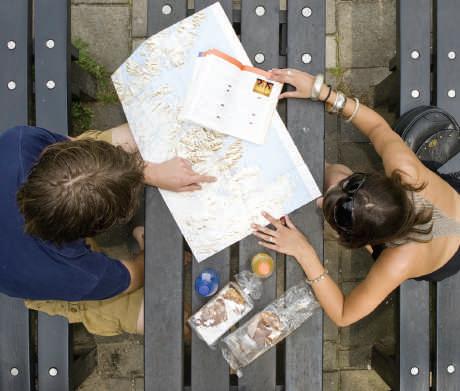
stUDent Book Book 2 27
Let’s book our trip!
A Model Conversation

Read the conversation. Then listen. Track 55
Cathy: Okay, Max. Tell me where on the plane you want to sit.
Max: Please don’t put me in a window seat. I’m afraid of heights.
Cathy: Really? Okay, it says, “Click here to reserve.” Done.

Max: Don’t close the window. It’s still processing.
Cathy: Now it says, “Choose ticket type.” Do we want to print our tickets, or do we want e-tickets?

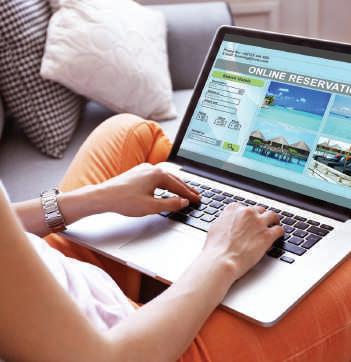
Max: Don’t print them. We can just bring our passports to the airport. They match the passport to the ticket number.

Cathy: Then don’t forget to bring your passport.
Max: Of course. That’s the most important thing.
B Vocabulary
Read each word or phrase, listen, and repeat. Then match each word or phrase to the correct picture. Track 56
C Vocabulary: on an airplane
Read. Then listen and practice. Track 57
Can you think of words for other parts of the airplane? Write them below. Then draw arrows to match them to the picture.
D In Your World
Discuss these questions with a partner. Then share your answers with another pair. Do you have experience traveling by airplane? Do/Would you like to fly? Why or why not?
On an airplane, where do you like to sit? What do you think about traveling by air?


Lesson 5
afraid of heights ( ) click ( ) airport ( ) print ( ) passport ( )
middle
overhead
window
aisle
aisle a b c d e 28
seat
compartment
seat
seat
e Grammar Imperatives
Use imperatives to give commands, make suggestions, give instructions, or encourage someone. affirmative imperatives: verb (base form) negative imperatives: Do not / Don’t + verb Take care.
Be on time, please. Tell me where you want to sit on the plane. Click here to save.
F Grammar Practice
(suggestion/farewell)
(command/instruction)
(command)
(instruction)
Fill in the blanks with words from part E.
Don’t forget your passport.
Don’t close the window.
Don’t put me in a window seat.
Don’t work too hard. Don’t give up.
(command)
(instruction)
(command)
(suggestion/farewell)
(encouragement)
1. forget to pack a bathing suit. There’s a beautiful pool at the hotel.
2. here to book your trip online.
3. Have a great trip. care!
4. faster. You need to finish this work quickly.
5. Don’t the window yet. I need to type my passport number.
6. your bag in the overhead compartment.
7. The plane leaves at 6:15. be late!
8. us about your trip. Was it fun?
G Write to speak
Make a list of suggestions using imperatives. Suggest what a friend should do for his or her next trip. Then share your ideas with a partner.
.
.
H Use the Language
Talking to a travel agent
Role-play a conversation between a travel agent and a customer.
Travel Agent: Help your customer book a trip. Answer questions about how he or she can prepare for it.

Customer: Book a trip and ask the travel agent about how to prepare for it.
After you finish, summarize your conversation with another pair.
stUDent Book Book 2 29
1.
2.
3. 4.
Active Review
Create a travel flyer for a place you want to visit.

The flyer must include:
• the name of the place
• a picture of the place
• things you can do there
• things you need to bring
• how to book the trip online



• how long the trip is
• prices and options
• contact information for the travel agency
B Present Your Flyer
After you create your flyer, present it to a partner. Answer any questions he or she has about the place and the trip. Write the questions below.
Duration:
Duration:
Share your flyer with the class. Vote on the best one. Consider the following:
• Which flyer has the best design?
• Which flyer has the most detail?
• How clear is the information?
C Reminder
Some Module 4 Goals in Unit 7
Put a check mark () next to the things you can do.
Find basic information in advertisements
Ask for basic information about travel and buy tickets
Discuss plans with other people (for example, what to do and where to go)

A A travel Flyer
castles
Loch
activities:
Visit castles • Try mutton • Visit Loch Ness • Hike in the highlands
highlands
Ness mutton Included
•
$2,200 US
Price From
7 days
$2,500 US
From
10 days
6 nights hotel stay with breakfast
Transfers
hiking boots, sweaters, camera, maps, raincoat
Price includes •
•
needed:
30
To book now, visit wingstravelagency.com and click on Scotland Trip. For more information, call toll-free at 555-698-7000.
A Listen for Information
Listen and fill in the blanks. Then practice the conversation with a partner. Track 58
Travel Agent: Sunstar . Can I help you?
Customer: Yes, hello. I want to a trip somewhere. I’m a - , so…
Travel Agent: So, are you interested in an ?
Customer: What’s that?
Travel Agent: An exciting tour where you can do things like mountains, take along beautiful rivers, ride in the ...
Customer: Wow! That sounds . Do you have any trips to the of ?
Travel Agent: Yes, we do. But a lot of people want those tickets. You book soon.
Customer: Okay, my friend tonight to talk about the trip. tomorrow?
Travel Agent: Yes, or book online. Our website is very easy to use. to include your number when you book your ticket.
Customer: your web address, please.
Travel Agent: It’s www.sunstar.com.
Customer: Thank you for your help.
Travel Agent: You’re welcome.
B Prepare to speak
Listen again and write down some things you can do on an adventure tour. Then use the Internet to write down more ideas. Track 58
Adventure Tours
When you’re finished writing, take five minutes to look back through the module. Pay close attention to the part A activities, where Cathy and Max are making plans to go on a trip.
C Practice speaking
Find a partner. Role-play a conversation between two friends planning to go on an adventure tour. Discuss these details:
What kinds of things do you want to do? Where do you want to go?
What does your friend think about it? What does he or she want to do on an adventure tour?
D now speak
Stand up in front of the class with your partner. Role-play your conversation. After all the pairs finish, discuss these questions:
A. Which pairs were fast? Did they make many mistakes?
B. Which pairs didn’t make many mistakes? Were they fast?
Fluency
stUDent Book Book 2 31
Thinking About a Trip
1 Match the words with their definitions.
a. not visited by many people
b. a trip to explore a new place
c. a person who likes doing exciting things

d. a country in the north part of Africa
e. a very dry area with few trees and little water
f. a very thick tropical forest, such as the ones in Costa Rica

g. an animal with a round back; it usually lives in or near deserts



3 Underline the errors and write the correct word(s) on the lines.
1. How about we staying in this hotel?
4 Put the conversation in the correct order. Then listen and check. Track 31
Maria: So, what did you find online?
Maria: That sounds amazing. Let’s go there.
Ricardo: Sounds good!
Maria: Oh, what is it?
Maria: You’re right. Hey, what about going to Argentina this year and exploring Costa Rica next year?
Maria: That sounds cool, too! How about doing both?
Ricardo: Well, there’s a tour of Patagonia in Argentina. It’s really beautiful. It’s in a lot of movies.

Ricardo: Exploring the jungle in Costa Rica.

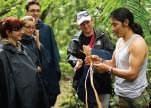
Ricardo: You know that’s too expensive.
Ricardo: Wait. There’s another option.
Lesson 1 Unit 7 . Before the Trip
1. Morocco
2. off the beaten path
3. jungle
4. camel
5. tour
6. desert
7. thrill-seeker
3. Let’s finding a cheap tour of the Amazon.
2. Let’s to check online for options.
1
4. How about take a train?
1 2 3 4 32
2 Listen to the conversations. Then match them to the pictures. Write a, b, c, or d in the blanks. Track 30
1 Fill in the blanks with the words from the box.
China extreme heat spicy hate extreme cold yum
1. This food is too . I don’t think I can eat it.
2. My parents are from , so I’d like to go there.
3. Samantha hates the here in Canada. She always goes to Miami in winter.

2 Choose the correct answers.
4. ! This chocolate cake is so good.
5. The weather here is terrible. I it.
6. I don’t like either, but it’s okay when I’m on the beach in India!
1. I don’t like doing exciting things. I’m not a thrill-seeker.
2. I like Chinese food, but I love Indian food.
3. I think extreme heat is better than extreme cold.
4. It’s raining, and I don’t have an umbrella.
5. I want to go to China in the spring.
a. Me too. b. Me neither.
a. I do too. b. I don’t either.
a. I do too. b. Me neither.
a. Me too. b. I don’t either.
a. Me too. b. Me neither.
3 Listen to the conversation. What are the women NOT planning to do? Choose the correct answer. Track 32
stay in California
4 Listen again. Are these statements true (t) or false (f)? Track 32
1. The woman and her sister are flying to LA.
2. They are leaving on Saturday.
3. They’re flying from LA to Las Vegas.

4. The sisters want to see the desert in Arizona.
5. The man wants to go to the Grand Canyon.

6. They are driving from Montana to LA.
7. The man wants the woman to send him pictures.
5 Write the correct forms of the verbs. Then circle the words or phrases that show the speaker is discussing the future.
1. We (go) to France next year.
2. I (take) a tour of London in August.
3.
(you, travel) to India this summer?
4. Jack (explore) the city this weekend.
5. My sister (leave) to go on a trip tomorrow.
6.
(they, have) something spicy for dinner tonight?
Deciding on a Trip Lesson 2
a.
b. see the desert
c. visit Las Vegas
WoRkBook Book 2 33
Lesson 3
What could we do on vacation?
1 Choose the best pictures to match the statements.
1. That white jacket is fantastic. I could buy it for my trip.
2. You can see some incredible things in Nepal.

3. I’m a big fan of hiking and adventure.
4. We’re visiting some friends. Their house is by a river.
2 Match the two columns to make sentences.
1. I could look
2. Can you
3. Sheila can speak
4. We could go to


5. My dad can’t
6. I can meet
7. We don’t have to walk. We
a. you at the subway station.
b. Portugal this winter.
c. at ads for adventure tours.
d. Spanish very well.
e. go on the trip. He has to work.
f. could take the bus.
g. eat really spicy food?
4 Fill in the blanks with the correct words from the box.




3 Listen to each sentence and circle the word that you hear. Then check and practice. Track 33
1. Jim ( can / can’t ) swim.
2. We ( can / can’t ) drive.
3. Ella ( can / can’t ) travel now.
4. I ( can / can’t ) speak Portuguese.
5. They ( can / can’t ) pay for the trip.
incredible hike river trails fan adventure riverboat


Hi Derek,
How’s it going? I’m planning a trip now. I checked a lot of ads and chose a trip to Vietnam. I remember that you went to Vietnam once. Could you please let me know what you think?
I found a lot of pictures of the jungles and old cities there. They look 1 ! You know I’m a big 2 of Asian history. On this trip, I could see a lot of old buildings in Hanoi, the capital city, and in other places. I can also 3 outside the city. There are a lot of good 4 for hikers. Then I could fly to Ho Chi Minh City, take a
5 down the 6 there, and go to Phu Quoc (Paradise Island). It sounds like a(n) 7
Take care, Sabina
! What do you think?
a b c d
34
1 Find and circle the words.
2 Choose the sentence with the same meaning.
1. This Nepal tour is a real deal!
a. The tour price is too much.
b. The tour price is not expensive.
2. Let’s compare prices.
a. We should see how the prices are different.
b. We should ask for a low price.
3. I can book the tickets online.
a. I can reserve the tickets on the Internet.
b. I can search for the tickets on the Internet.
4. What specific song do you want to hear?
a. I want to know the kind of song you want to hear.
b. I want to know the one song you want to hear.
1. We check the online deals soon. I do it after class.
2. There are no trains or airports there, so I rent a car. Then I drive you home.
3. I book the tickets. Do we come back before the end of the school break?
4. you compare prices on the website right now? I reserve the trip today.
4 Put the words in order to make sentences. Then write them again as negative sentences.
1. tickets / we / book / need / our / soon / to . (negative) .
2. you / with / can / a / credit card / pay . (negative) .
3. agency / can / call / I / travel / now / the (negative)
4. he / the / on / to / decide / date / needs (negative)
book quick compare date deal ticket specific Book 2 35
agency WoRkBook
Lesson
Planning the Trip
4
3 Fill in the blanks with need to or can. Then listen and check. Track 34 U Q X A E T A D R T Q I C F B O O X V G R E M F L K I K W Q N H W X B E R S O U F V S N J W L R T G W N I R I G Y Y D Z C O M P A R E C C M H P O B I N Z I I V I R E Y L F H V O B Y J G B M B P D K Z W R H O G I A W N M S E B P Q I E N K J X I P J B A M Y T K F M E L M K J P D L U Q T E A X T S N K C Z N F B W O N I K L R P U R I X M Z A V O F G C K H Q F N U T A W P B L Y Q I K S Z O E Q G V M H V R M Z W N E C F O H R W Q D F M P Y Y G V T R V
Lesson 5
1 Listen to the conversation and choose the correct answer. Track 35
1. Where is Erica?
a. at home with her laptop b. a friend’s house
2. Who is she talking to?
a. her travel partner
b. a man on a plane
2 Listen again. Put a check mark next to true or false. Track 35
c. at a travel agency
c. a travel agent
1. There are many seats available on the plane. true false
2. Erica is afraid of heights. true false
3. The man can’t find an aisle seat. true false
4. Erica decided not to buy a plane ticket. true false
5. Erica can’t pay for the ticket today. true false
3 Choose the correct answers. Listen and check. Track 36
1. . We still need to print the tickets.
2. . Get a window seat.
3. We need to leave at 9:30. .
4. Have a great trip, and
5. your bags in the aisle.
a. Close not the window
a. No get a middle seat
a. Don’t be late
a. taking care
a. Don’t to put
b. Don’t close the window
b. Don’t get a middle seat
b. Be not late
b. take care
b. Don’t put
4 Write the correct affirmative or negative imperative form of the verbs.
1. (try) to get two seats next to each other.
2. (pay) the travel agent yet. I can look for a better deal.

3. (close) that window. We need to compare prices.
4. (go) to bed early the night before the trip.
5. The plane leaves at 10:00. (meet) me at the airport at 8:00.
Let’s book our trip!
36
1 Vocabulary
Choose the correct answers.
1. Kenji visited last year. He rode a(n) in the
a. Morocco, plane, airport
b. Morocco, airplane, airport
c. Morocco, camel, desert d. Morocco, camel, jungle
2. Look at this tour! Let’s it now.
a. incredible, riverboat, book b. incredible, adventure, compare
c. riverboat, deal, book
d. incredible, riverboat, click
3. To for your tickets BOOK.
a. click, pay
b. pay, book
c. click, tab d. pay, click
4. I put my bag in the and sat down in the
a. aisle, seat
c. riverboat, river
b. overhead compartment, travel agency
d. overhead compartment, aisle seat
5. We’re going on a(n) to Costa Rica. It’s really
a. adventure tour, yum
c. adventure tour, extreme heat
b. adventure tour, off the beaten path
d. advertisement tour, off the beaten path
6. We have to finish hiking this . I see a storm coming!
a. desert, quick
c. trail, ASAP
2 Grammar
Circle the correct answers.
b. trail, in person
d. jungle, ASAP
1. What about ( book / booking ) a trip to India? I heard the food is great.
2. ( I’m have / I’m having ) lunch with my old classmates tomorrow. ( Join / Joining ) us.
3. ( How about hiking / Let’s hiking ) in the jungle? We ( could / need to ) see a lot of different ani mals.
4. ( They’re visiting / They could visiting ) China next summer. They have family there.
5. We ( need to pay / need pay ) in person. We can’t do it online.
6. ( Lets ride / Let’s ride ) an elephant in the jungle.
7. A: I don’t like spicy food.
B: ( I don’t neither / I don’t either ).
Unit 7 . Before the Trip Unit
Review
WoRkBook Book 2 37
Reading Comprehension
Read the email. Then put a check mark next to true or false.

Dear Mom,
We’re away from Beijing for a while and traveling around China. On our first day in Shanghai, we went to the top of the Shanghai Tower, the tallest building in China. I’m afraid of heights, so it was scary for me. But you know Cathy. She’s a thrill-seeker, so she loved it! Tomorrow we’re going to the Great Wall. It looks fantastic.
We can walk along one part of the wall, but we need to wear good shoes because it is very hard to walk in places. China is great, but it’s very hot right now. I hate extreme heat. I know you do too. Let’s do a video chat next week when we’re back in Beijing. Cathy and I are flying to Thailand after that, and soon after, we can see each other in person again.
Love, Jenny
1. Jenny and Cathy are thrill-seekers. true false
2. On their first day in China, they went to Shanghai. true false
3. Jenny did not go to the top of the tallest building in Shanghai. true false
4. The girls went to the Great Wall and thought it was fantastic. true false
5. Jenny and her mother hate extreme heat. true false
6. Jenny and Cathy were already in Beijing. true false
4 Listening Comprehension
Listen to the conversations. Fill in the blanks with the words you hear. Track 37
1. A: What about for tickets?
B: Good idea. that now.
2. A: I call the tomorrow.
B: Really? Thanks. Please the numbers.
3. A: I like sitting in . The view is always great.
4. A: ! This food is delicious. you show me how to make it?
B: Sorry, I didn’t make it. And I’m surprised you like it. It’s too for me.
5. A: It’s too hot to travel to Egypt in the summer.
B: go there in the winter.
6. A: Wow, look at this for Amsterdam. It looks there.
3
38
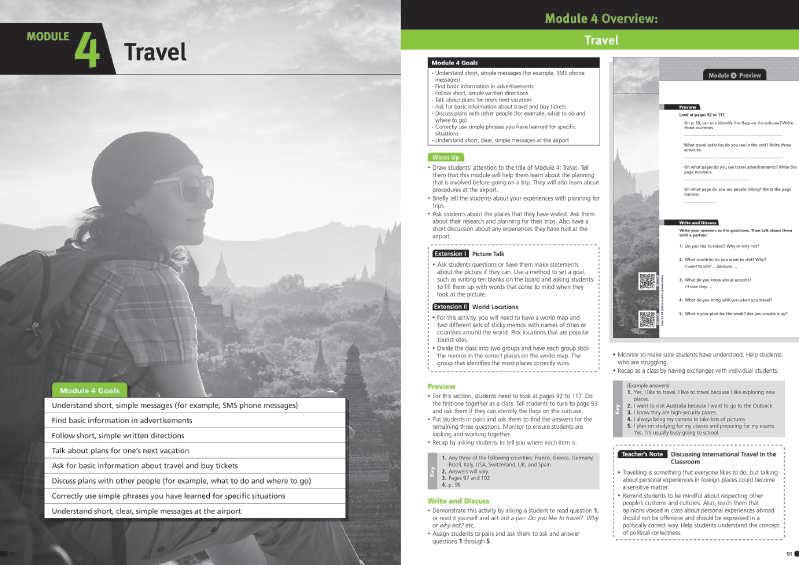
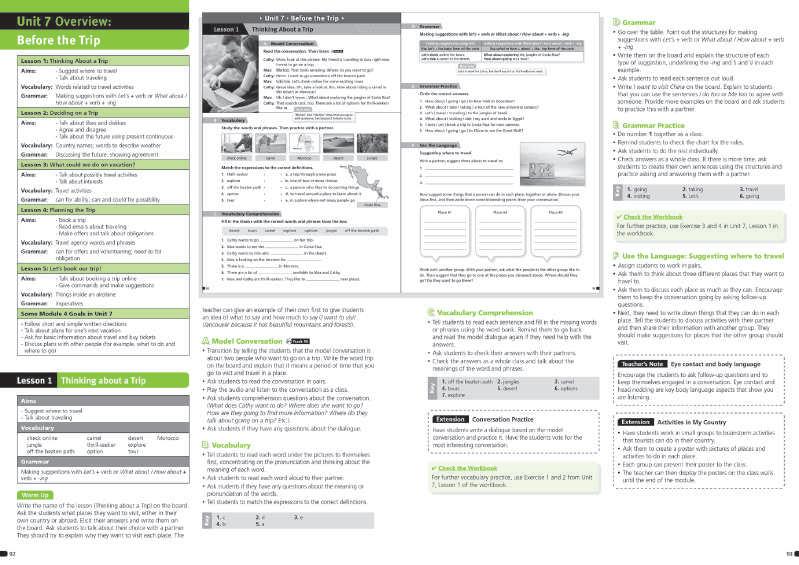
teACHeR’s GUIDe Book 2 39
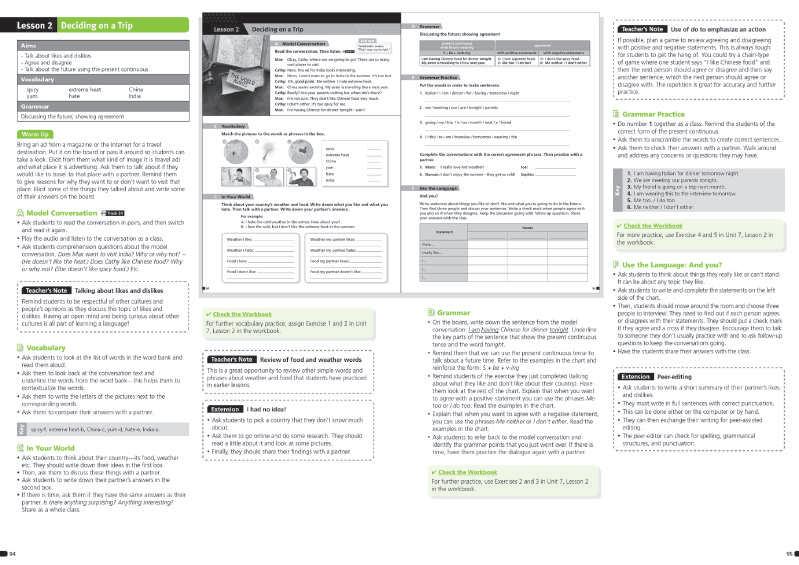
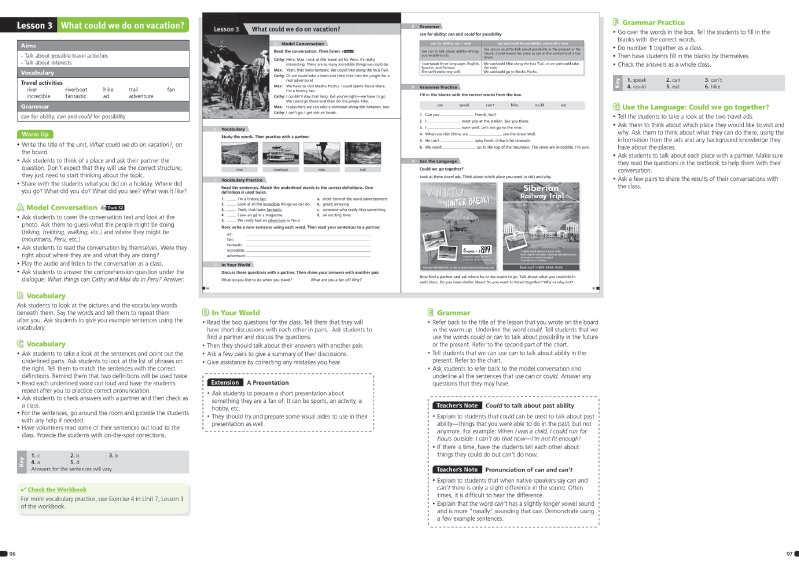
40
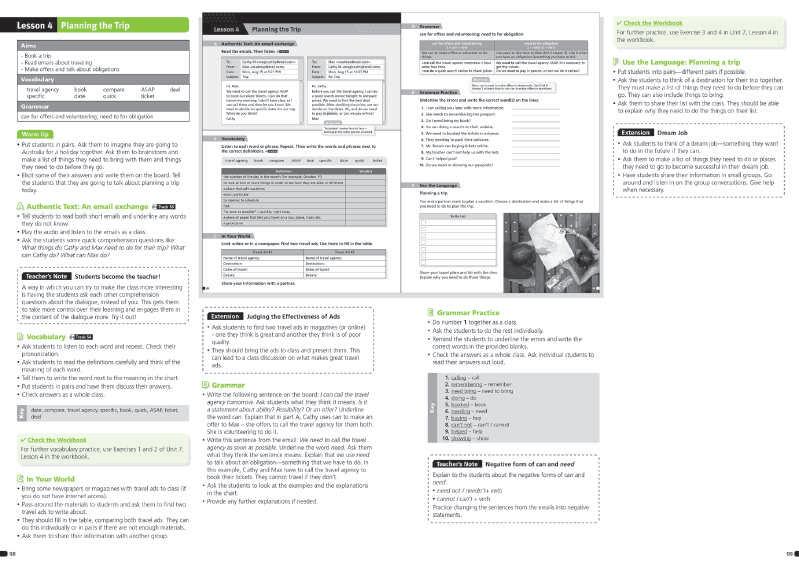
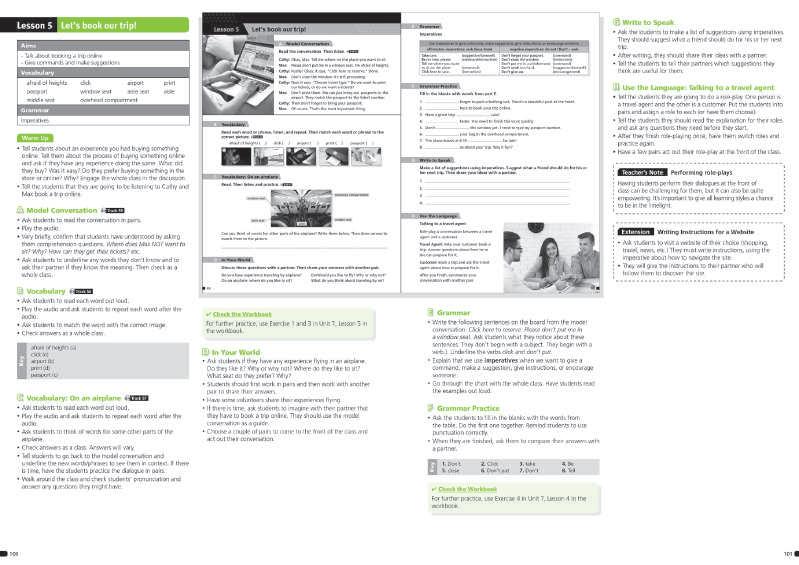
teACHeR’s GUIDe Book 2 41
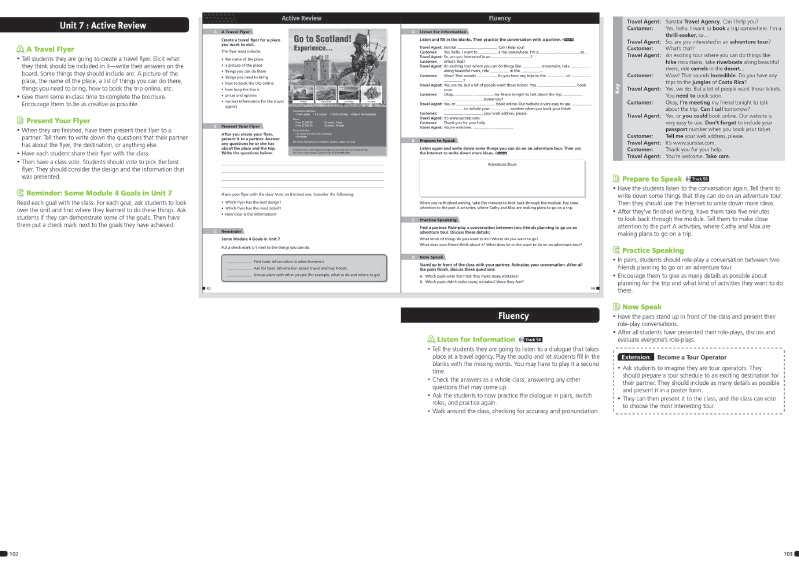
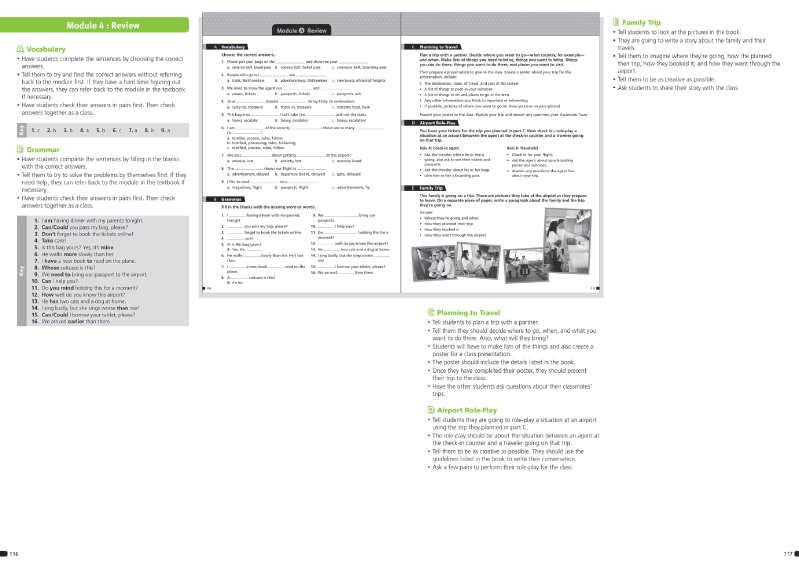
42
On Point Reading and Critical Thinking Skills
Lucas Foster, Thomas Hong, Peggy Anderson, Sam Robinson
With over fifty percent new content, On Point 2nd Ed. teaches learners to analyze, critically evaluate, and intelligently respond to texts. Learners discuss and develop wellreasoned, supported opinions on a wide range of highinterest topics as they learn critical thinking and reading skills to better understand and evaluate what they read. The series also builds learners’ cross-disciplinary academic vocabulary. Focus vocabulary for each reading passage is chosen from the Academic Word List (AWL) created by Averil Coxhead.
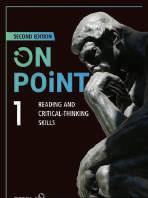


Reading for the Real World
Peggy Anderson, Sam Robinson
Reading for the Real World, Fourth Edition is a four-level series designed for intermediate to advanced English learners looking to improve their academic reading fluency and comprehension.


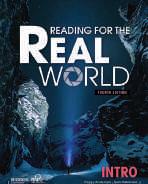



• New and updated readings on important current topics from a variety of academic subjects
• Reading comprehension exercises designed to hone comprehension skills, such as identifying the main idea, understanding details, and making inferences
• Pre-reading and post-reading exercises to reinforce the New Academic Word List (NAWL) vocabulary words encountered in the readings
CORE Nonfiction Reading
Stephanie Alexander, Liana Robinson
Core Nonfiction Reading is a three-book series for mature upper beginner and intermediate learners. The nonfiction content highlights a wide range of appropriate university-level topics that incorporate infographics.
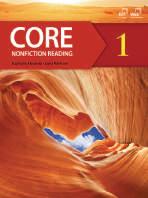


• Quantitatively-analyzed vocabulary and grammar


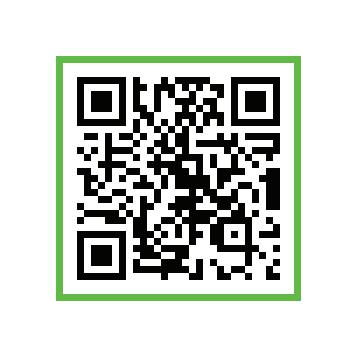
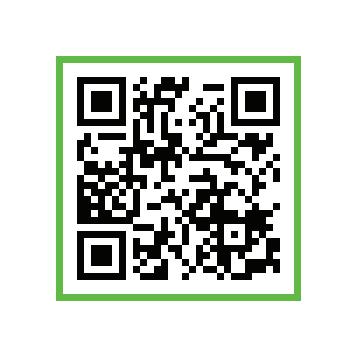
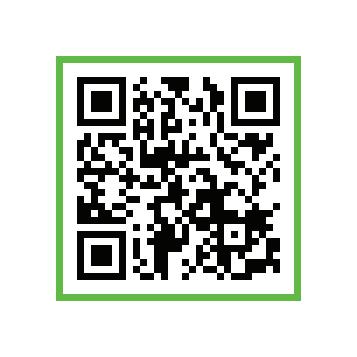
• Interesting and cognitively appropriate topics
• Instructive and fun infographics
LEVEL Upper Beginner~ Intermediate
STUDENT WORKBOOK Pages Unit 3 STUDENT BOOK Pages Unit 6 Units Book 14 Scan to view sample unit! Complimentary Downloads compasspub.com/CNR Teacher’s Kit LEVEL Upper Intermediate~ Advanced LEVEL Advanced check oUt oUr other amazing titles!
STUDENT BOOK Pages Unit 6 Units Book 12 STUDENT Scan to view sample unit! Complimentary Downloads compasspub.com/RRW4rd Teacher’s Kit
STUDENT WORKBOOK Pages Unit 3 STUDENT BOOK Pages Unit 14 Units Book 12 Scan to view sample unit! Complimentary Downloads compasspub.com/OnPoint Teacher’s Kit 43
BIGBOX is a learning app that offers students a wide variety of fun and engaging ways to improve their English.
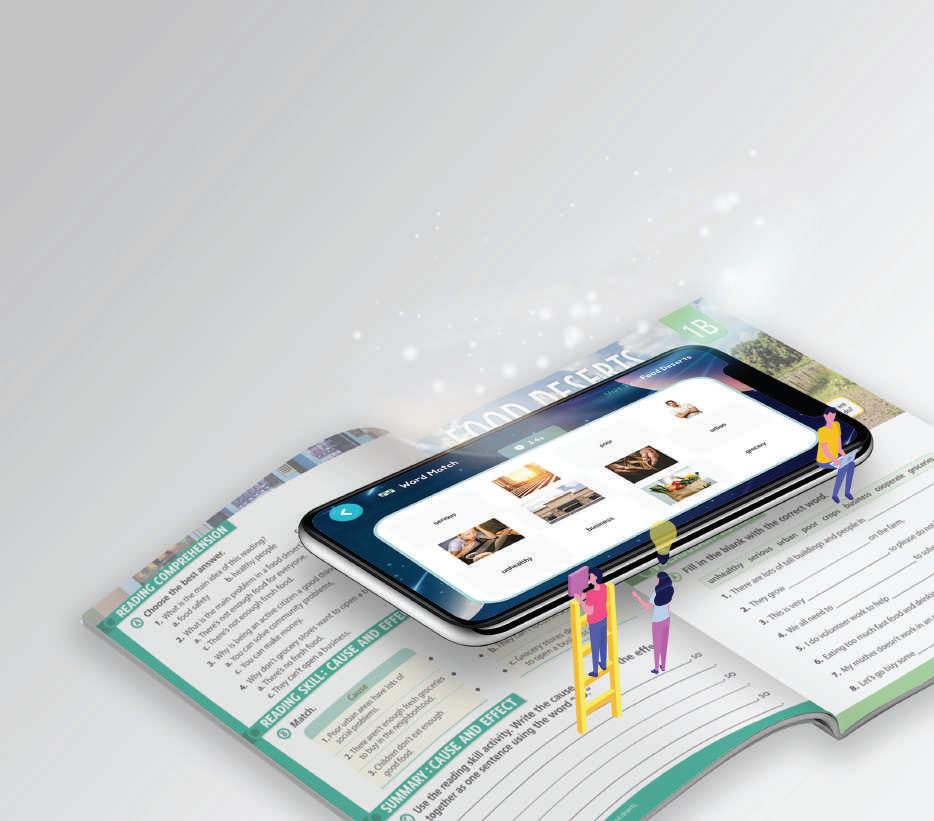
Practice what you learn in class
Read e-books and watch videos you like
Play fun games and earn rewards
How to Get BIGBOX on Your Smartphone, Tablet, or PC
BIGBOX works with this book. It includes Class Booster, fun activities you can do as homework, and other features.
How to Use
Scan the QR code to find out how to use BIGBOX Class Booster and other features of this book.
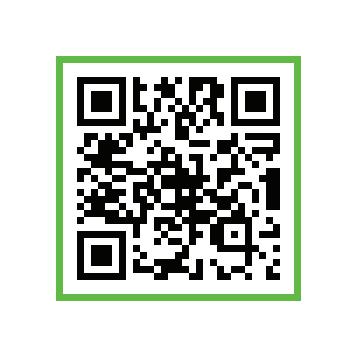
Download BIGBOX
★ For Mobile/Tablet Go to the App Store or Play Store to download BIGBOX.
★ For PC Download BIGBOX from https://www.playbigbox.com/download * Mac computers are not supported.
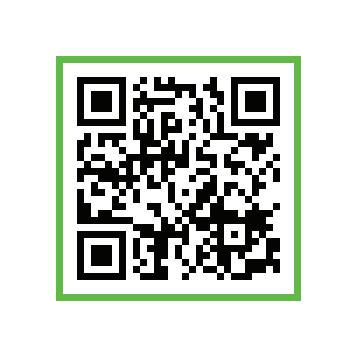

Teach Smarter with CLASSBOX! www.classboxenglish.com Check us out on Instagram, Facebook, and Youtube! Looking for a class curriculum? We offer well-designed programs and resources for your class! Curriculum and Resources Join our webinars to get up-todate teaching methods and tips. Webinar and Teaching Tips Don’t get stressed by class preparation! You’ll be ready with the Compass Digital-TG. Compass Digital-TG
Blue print 1-7 Beginner to Advanced
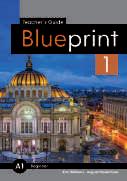
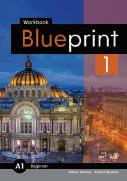
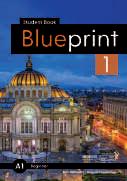
The seven-book Blueprint series is designed to help mature learners develop integrated English skills by guiding them to meet functional goals. It does this using level-controlled content, real-life topics and settings, compelling textbook design, and state-of-the-art supplemental materials.
Features
Strong CEFR Base
• Curriculum features goals derived from CEFR descriptors, so goals are intrinsically CEFR-leveled
• Presents grammar and structures in the order found in prominent CEFR-based inventories
Module Structure
• 2 units connected by similar themes and goals

• Bound together by preview and review sections
• Leads to achievement of learning goals, as evidenced in the performance of function-based tasks
Real World English
• Balance of input and output
• Output-focused activities in each 2-page lesson spread
• Communicative and fluency activities to bring together material from each unit
Components
• Student Book with streaming and downloadable audio
• Workbook with streaming and downloadable audio
• Downloadable Online Resources: Answer Keys, Word Lists, Progress Tests
• Student Digital Material: Class Booster
• Teacher’s Guide
• Interactive Whiteboard Materials
Blue print
CEFR Student Book Workbook Teacher’s Guide
Sampler























































































































